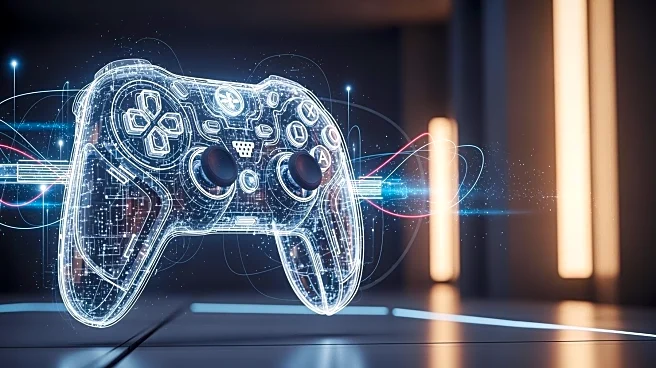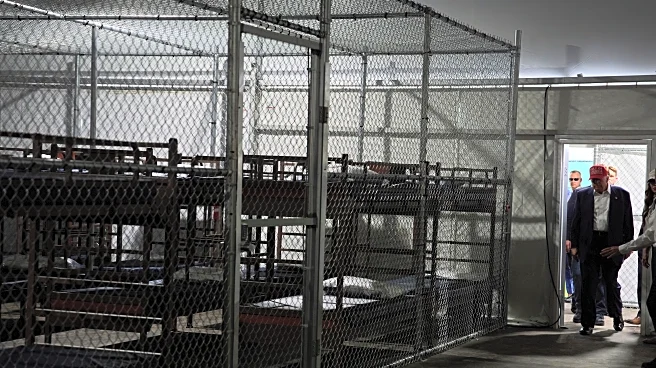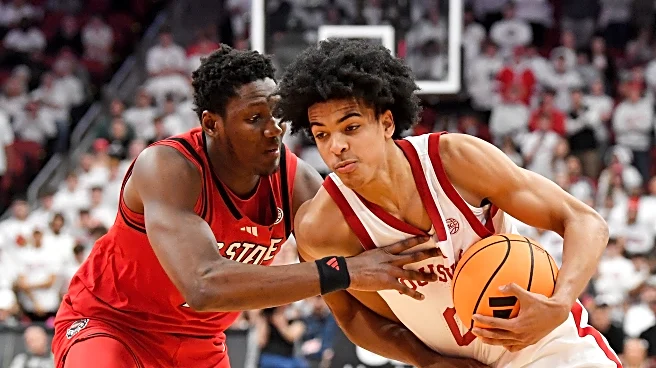What's Happening?
Elon Musk's xAI studio has announced plans to release the first fully AI-generated game by the end of 2026. This game is expected to feature real-time AI-created visuals, music, and gameplay, eliminating
the need for traditional game engines or human-created art. However, Glen Schofield, the creator of Dead Space, has expressed skepticism about this timeline. Schofield acknowledges the potential of AI in game development but doubts the feasibility of achieving such a complex project within the proposed timeframe. He argues that current AI tools lack the necessary input from developers experienced in creating engaging 3D worlds.
Why It's Important?
The development of AI-generated games represents a significant shift in the gaming industry, potentially transforming how games are created and experienced. If successful, this could lead to new opportunities and industries, much like previous technological advancements such as the internet and smartphones. However, the skepticism from industry veterans like Schofield highlights the challenges and limitations of current AI technologies. The debate underscores the need for collaboration between AI developers and experienced game creators to ensure the creation of engaging and immersive gaming experiences.
What's Next?
As xAI progresses with its ambitious project, the gaming industry will be closely watching for developments and breakthroughs in AI technology. The success or failure of this initiative could influence future investments and research in AI-driven game development. Industry stakeholders, including game developers and AI researchers, may need to collaborate more closely to address the challenges identified by Schofield and others. The outcome of this project could set a precedent for the role of AI in creative industries.
Beyond the Headlines
The push for AI-generated games raises ethical and cultural questions about the role of AI in creative processes. As AI becomes more integrated into game development, there may be concerns about the displacement of human creativity and the potential loss of jobs. Additionally, the reliance on AI-generated content could lead to debates about originality and the value of human input in artistic endeavors. These discussions could shape the future of AI's role in not only gaming but other creative industries as well.










